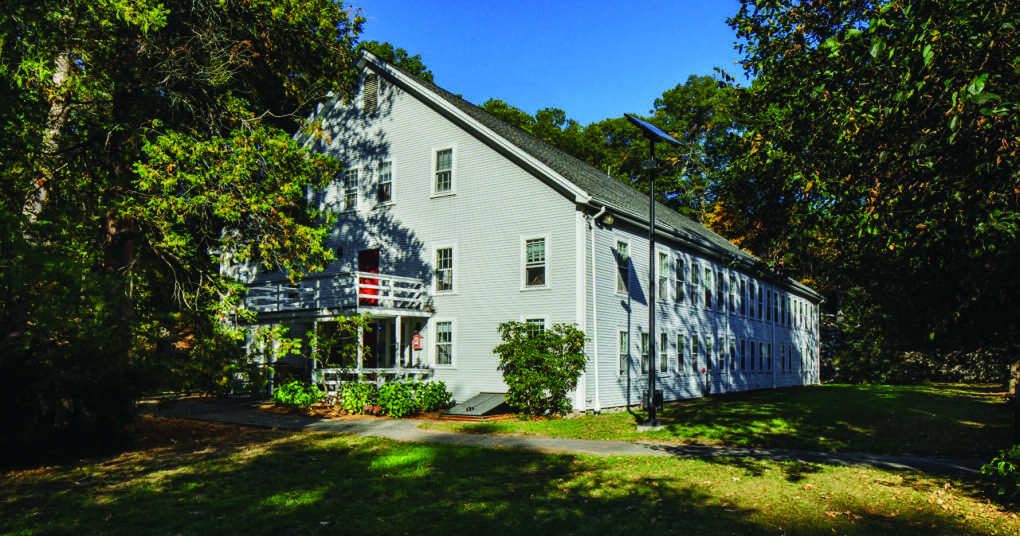Residential Life is planning to undergo several changes to enhance the student experience on campus. First, Dower, a smaller residential hall located on the east side of campus, is set to become the East Asian Language and Culture (EALC) House. Second, Lake House, the traditionally upper class hall, will house incoming first-years beginning in Fall 2019. The latter change to housing has not been excessively publicized, and it is speculated that only current residents of Lake House and Dower were currently made aware of it.
Though language corridors and houses have been a staple at Wellesley for decades, this is the first time a residence hall will be dedicated to East Asian languages and cultures. The EALC Department at Wellesley explores East Asian language as well as interdisciplinary courses focused on East Asian history, political science and film. The department offers language courses in Mandarin, Japanese, and Korean. Currently, the corresponding language corridors are located in separate residence halls across campus. The Mandarin corridor is located in Bates, the Japanese corridor is in Stone-Davis and the Korean corridor is in Freeman.
The new EALC House will operate several programs intended to promote bonding and a sense of community among EALC residents. According to Assistant Director of Residential Life Don Leach, new programs such as “outing hours” and “cooking hours” will be used to create community among the residents. According to the informational pamphlet Leach compiled for prospective EALC residents, “[during] outing hours … residents can engage in off-campus trips, such as going to a restaurant, Ittoku, for a Japanese meal; Spring Shabu Shabu for hot pot; Chinatown for Dimsum … [or] HMart for shopping for groceries.” Cooking hours are a bit more self-explanatory, but Leach proposes, “A bi-weekly food and culture series devoted to meal preparation (and eating!) … Faculty, staff and students would be invited to lead a cooking class.”
To be eligible to live in the EALC House, a student must have taken a course in the EALC department for at least one semester or exhibit proficiency and/or affinity towards an East Asian language. Interested students should submit an application to Don Leach and the Office of Residential Life by March 1. Admitted applicants will be notified by March 8.
Leach is mostly excited about the new changes to residential life. “We’re doing something that hasn’t been done yet at Wellesley. We’re letting the academic curricular goals and residential goals interact with each other. We’re trying to create a synergy between the academic goal of increased language fluency and the more personal goal of being a resilient student,” says Leach.
Leach also suggested that this housing system could be used as a pilot program for more formal living-learning communities intended to combat feelings of isolation, a common occurrence at colleges like Wellesley. “What we’re trying to do here is create a more formal structure and community to combat student loneliness on campus. This model is applicable to other departments — we may potentially use this as a model for other languages, or with other communities and groups on campus.”
As mentioned earlier, converting Dower House into the EALC House is not the only change happening in residential life. Opening up Lake House to first years is another change the College plans to implement next semester. Lake House has traditionally been reserved for upper-class students and does not have any RAs. Rather, students live more independently and reach out to their Resident Director (RD), Don Leach, if conflict should arise. Once Lake House begins housing first years in the fall of 2019, traditional RAs will be present in the hall.
Mallika Kaur ’20 and Chloe Nosan ’20, current residents of Lake House, are not as excited for these impending changes. According to Kaur, “I think it should remain an upper-class dorm. I like the idea of our RD being more directly involved with us and because we don’t have RA’s, we have a more intimate relationship with our RD. If there’s an issue we resolve it within our house.” Kaur continues, “I like not having an RA because everyone has equal footing, there’s no established hierarchy. We all have the same stake in the success of the community.”
Chloe Nosan ’20 agrees. “I think it’s great that in the past we have been trusted to live without Res Life, even though we do have Don Leach. It will be a little bit of a loss, I think, because you will be limited if you wanted to live in a more “mature” community reserved for upper-class students. Your only option is like, maybe, Orchard Apartments. But at the same time, I do miss having those bonding events…that RAs sponsor…you know, just a set time to come together as a hall. And I do think it gives a different vibe to the community by bringing in first years.”






